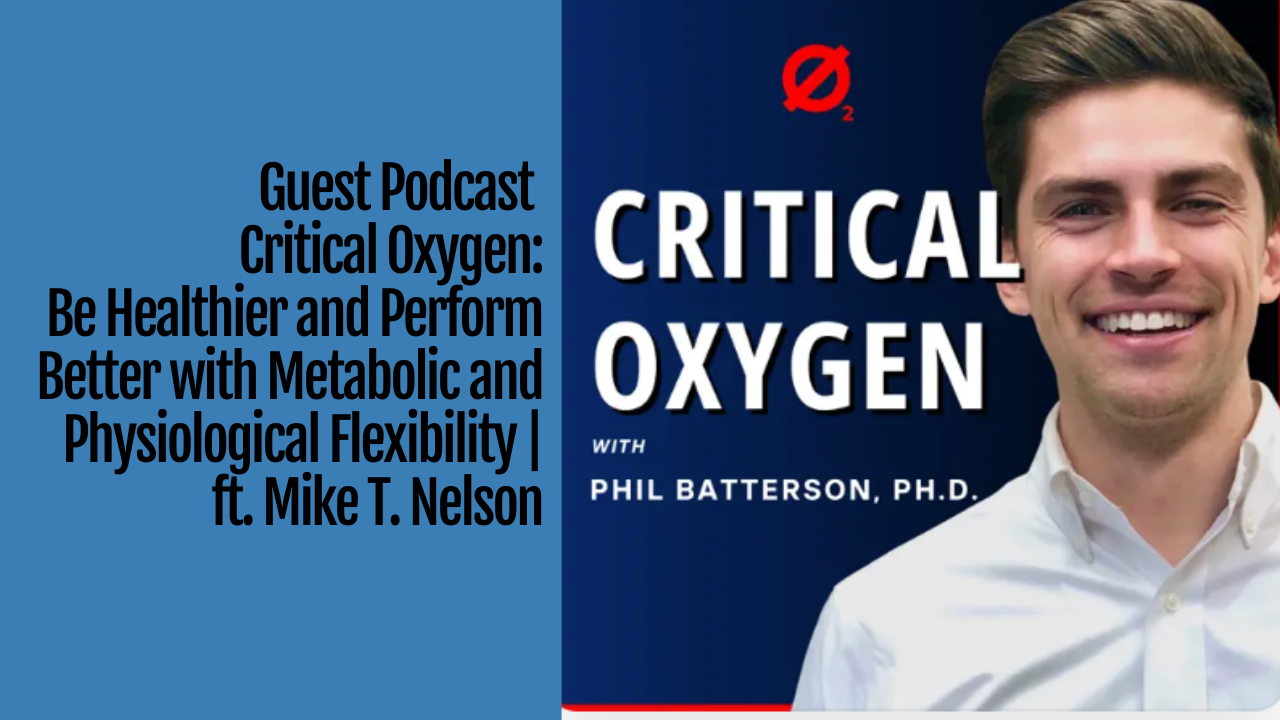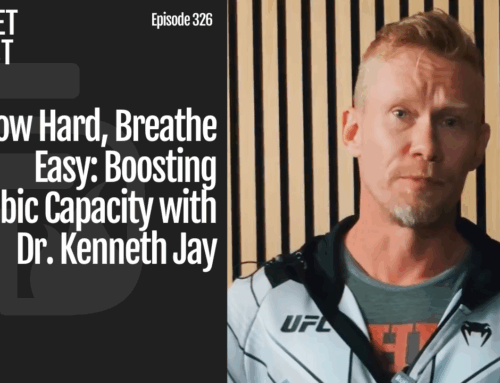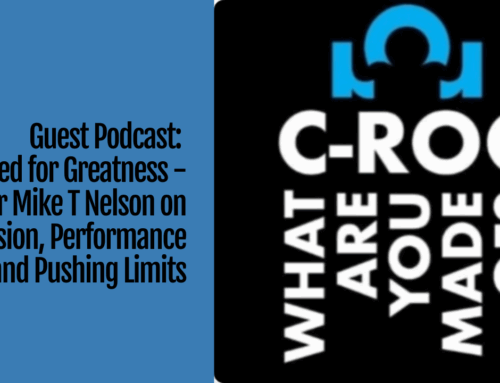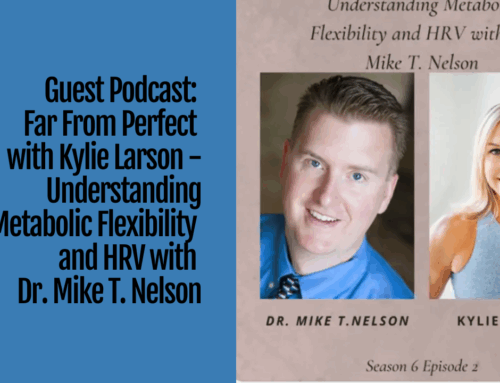I recently had the honor of joining Dr Phil Batterson on the Critical Oxygen podcast. We discuss metabolic and physiological flexibility, and explore their significance in human performance and health.
We discuss the importance of being able to switch between carbohydrate and fat metabolism, the role of exercise in enhancing metabolic flexibility, and the implications of research findings on variability in metabolism. The conversation also touches on practical applications for athletes and individuals looking to optimize their metabolic health through tailored training and nutrition strategies.
We also talk about the importance of metabolic and physiological flexibility, mitochondrial health, and the role of exercise in enhancing metabolic adaptation. We emphasize the significance the concept of physiological flexibility, which includes temperature regulation, pH balance, and oxygen/CO2 management. The discussion highlights the interconnectedness of these physiological systems and the necessity of a balanced approach to training and recovery.
📚 Episode Chapters
- 00:00 Understanding Metabolic Flexibility
- 10:13 The Journey into Human Optimization
- 19:59 Research Insights on Variability and Metabolism
- 29:45 Practical Applications of Metabolic Flexibility
- 40:14 Training for Optimal Metabolic Health
- 54:36 Metabolic Flexibility and Mitochondrial Health
- 01:01:05 The Role of Exercise in Metabolic Adaptation
- 01:06:42 Strength Training and Muscle Mass Preservation
- 01:12:46 Physiological Flexibility: Understanding the Four Pillars
- 01:16:36 The Interconnectedness of Physiological Systems
🤯 Takeaways
- Metabolic flexibility is the ability to switch between carbohydrate and fat metabolism.
- Exercise plays a crucial role in enhancing metabolic flexibility.
- Insulin acts as a fuel selector switch in the body.
- Physiological flexibility involves maintaining temperature, pH, and gas exchange in the face of greatly changing stress environments.
🎧 Listen Here
Rock on!


Dr. Mike T Nelson
PhD, MSME, CISSN, CSCS Carrick Institute Adjunct Professor Dr. Mike T. Nelson has spent 18 years of his life learning how the human body works, specifically focusing on how to properly condition it to burn fat and become stronger, more flexible, and healthier. He’s has a PhD in Exercise Physiology, a BA in Natural Science, and an MS in Biomechanics. He’s an adjunct professor and a member of the American College of Sports Medicine. He’s been called in to share his techniques with top government agencies. The techniques he’s developed and the results Mike gets for his clients have been featured in international magazines, in scientific publications, and on websites across the globe.
- PhD in Exercise Physiology
- BA in Natural Science
- MS in Biomechanics
- Adjunct Professor in Human
- Performance for Carrick Institute for Functional Neurology
- Adjunct Professor and Member of American College of Sports Medicine
- Instructor at Broadview University
- Professional Nutritional
- Member of the American Society for Nutrition
- Professional Sports Nutrition
- Member of the International Society for Sports Nutrition
- Professional NSCA Member










Leave A Comment